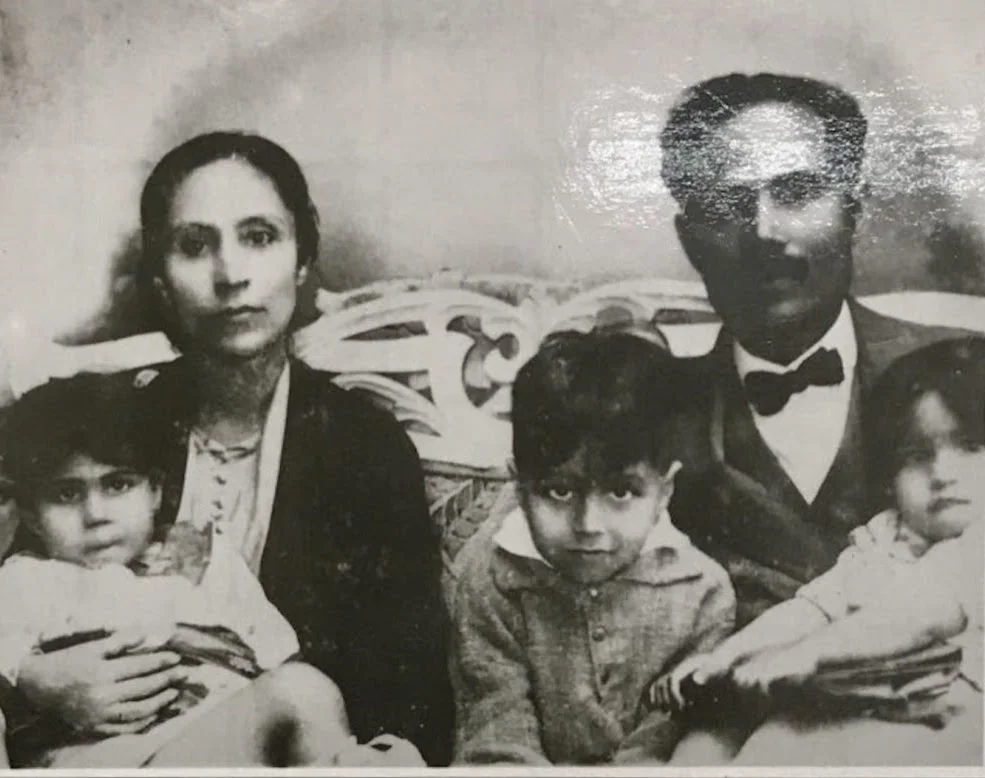PEDRO ALBIZU CAMPOS
Early Life and Education: Pedro Albizu Campos was born on September 12, 1891, in Ponce, Puerto Rico. He showed exceptional academic skills from a young age and went on to study engineering at the University of Vermont and later earned a law degree from Harvard University.
Harvard Experience: Albizu Campos's time at Harvard exposed him to various political and social ideas, including those related to self-determination and nationalism. His experiences there had a significant impact on his later political views.
Nationalist Party: Albizu Campos joined the Puerto Rican Nationalist Party (Partido Nacionalista de Puerto Rico), which aimed to establish Puerto Rico as an independent and sovereign nation separate from the United States. The party also sought to preserve and promote Puerto Rican culture and heritage.
Leader of the Nationalist Movement: Albizu Campos became a prominent leader of the nationalist movement in Puerto Rico. He advocated for the end of U.S. colonial rule on the island and pushed for full political and economic independence.
Protests and Activism: Albizu Campos and his supporters engaged in various forms of protests and civil disobedience to challenge U.S. control over Puerto Rico. This included demonstrations, strikes, and campaigns against the exploitation of Puerto Rican resources by American corporations.
Ponce Massacre: One of the most tragic events associated with Albizu Campos's activism was the Ponce Massacre of 1937. A peaceful protest organized by the Nationalist Party in the town of Ponce resulted in a violent confrontation with the police, leading to the deaths of several protesters and police officers.
Arrest and Imprisonment: Due to his activism and calls for independence, Albizu Campos was arrested multiple times. He spent a considerable amount of time in prison, often under harsh conditions. His health deteriorated during his incarceration(s).
Radio Free Puerto Rico: Albizu Campos used the radio station "WINA" (later renamed "WKAQ") to broadcast messages of resistance and call for Puerto Rican independence. His radio broadcasts played a crucial role in mobilizing supporters and spreading his nationalist ideas.
Legacy and Impact: Albizu Campos is remembered as a symbol of Puerto Rican nationalism and resistance against colonialism. His efforts to promote Puerto Rican identity and culture continue to inspire those who seek greater autonomy and sovereignty for the island.
Death and Controversy: Albizu Campos passed away on April 21, 1965, in San Juan, Puerto Rico. His death remains a subject of controversy and speculation, with some believing that his health was intentionally compromised during his imprisonment(s).
Pedro Albizu Campos's legacy is complex, as he is celebrated as a hero by some for his dedication to Puerto Rican independence, while others view his methods and ideologies with criticism. He remains a polarizing figure in Puerto Rican history, but his contributions to the island's nationalist movement cannot be denied.
If you're looking to learn more about Pedro Albizu Campos, his life, and his contributions to Puerto Rican nationalism and independence, you can explore various resources including books, documentaries, and academic articles. Here are some recommendations:
Books:
"Albizu Campos: Puerto Rican Revolutionary" by Federico Ribes Tovar - This biography provides a comprehensive look at Albizu Campos's life and his role in the Puerto Rican nationalist movement.
"Pedro Albizu Campos: Las Llamas de la Aurora" by Marisa Rosado - Written in Spanish, this biography delves into the political and personal life of Albizu Campos.
"The Fight for Equality: A Memoir from Puerto Rico's Uprising" by Luis Nieves Falcón - This book offers an insider's perspective on the Puerto Rican independence movement, including insights into Albizu Campos's leadership.
"War Against All Puerto Ricans: Revolution and Terror in America's Colony" by Nelson A. Denis - While not exclusively focused on Albizu Campos, this book provides a broader historical context for Puerto Rico's struggle for independence.
Documentaries:
"Albizu" (2010) - This documentary explores the life and legacy of Pedro Albizu Campos, featuring interviews with historians and individuals who knew him.
"The Battle of Vieques: Puerto Rico's David and Goliath" (1997) - While primarily centered on the struggle against U.S. Navy bombings on the island of Vieques, this documentary touches on Albizu Campos's influence on Puerto Rican resistance.
Academic Articles:
Check academic databases like JSTOR, Google Scholar, or your university's library for scholarly articles related to Pedro Albizu Campos and the Puerto Rican nationalist movement. Some notable academic journals in this field include "Centro Journal" and "Latin American Perspectives."
Websites:
The Center for Puerto Rican Studies (Centro) - Centro is a research institute focused on Puerto Rican studies. They have a wealth of resources, including articles, publications, and digital archives related to Albizu Campos and Puerto Rican history.
Puerto Rico's Political Status - For a deeper understanding of the political context of Albizu Campos's activism, you can explore websites dedicated to Puerto Rico's political status, such as those maintained by government agencies or advocacy groups.
These resources should provide you with a well-rounded view of Pedro Albizu Campos and the historical and political context of Puerto Rican nationalism and independence. Remember to verify the credibility of your sources and consult multiple perspectives to gain a comprehensive understanding.

